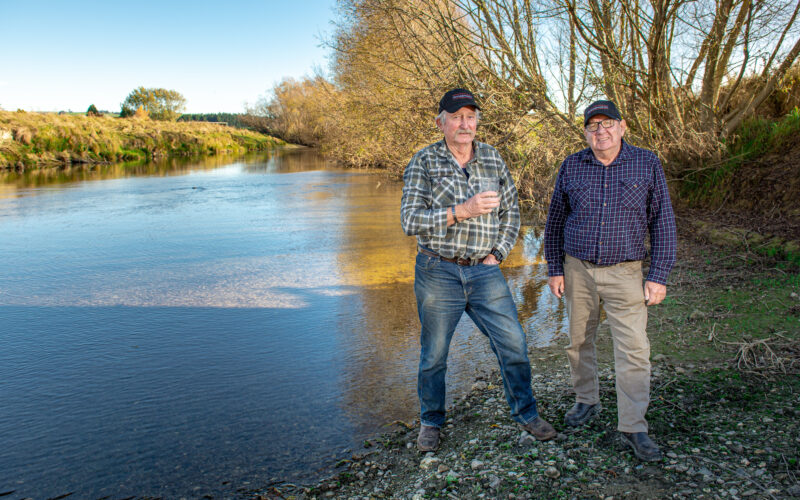The perception that rural leaders were capitulating to politicians prompted two southern farmers to act.
They were increasingly hearing from farmers that their producer bodies were not representative of their views. Laurie Paterson and Bryce McKenzie felt they needed to give them that missing voice.
Groundswell was formed to try to breach that perceived gap between grassroots farmers and sector leaders – but also with the goal of having the sector speak with one voice in confronting issues such as climate change.
“We were formed to give farmers a voice and would have happily got in behind Beef + Lamb NZ (BLNZ), Dairy NZ and Federated Farmers to provide some unity prior to negotiating with the government,” says co-founder McKenzie.
“But once we got in the room with them, they weren’t interested in that. They were only interested in what the board or they themselves thought farmers needed.”
That included pushing their preferred version of He Waka Eke Noa (HWEN) despite, McKenzie says, substantial resistance from their levy-paying members.
“Farmers are feeling disconnected,” says McKenzie, a West Otago farmer.
Fellow founder Paterson says in regard to climate change and water quality, farmers feel politicians and sector leaders are not recognising that they are among the most carbon-efficient food producers in the world.
“Blanket planting of trees or kicking sheep and beef farmers off the land will not solve anything,” the Waikaka farmer says.
McKenzie agrees.
“Farmers need to know somebody has their back, which is why people have hooked in behind Groundswell.
“We are standing up for them and defending what they are doing, which is something they haven’t heard before.”
They are not against change, they say – farmers constantly adapt and change, but those historic improvements have been ignored.
Paterson says they oppose regulations that lack common sense and logic. He cites new rules for managing freshwater, intensive winter grazing and significant natural areas.
McKenzie says ideally he would like leaders to listen more to farmers and to be united in opposition to legislation that is obviously unworkable.
He says HWEN is an example of something that began with the right intentions, but to achieve consensus the various parties had to concede ground and the result is unpalatable.
Farmers have never been more frustrated and he despairs of the impact on younger generations entering the industry.
“We are really concerned about what we hear from young guys who are asking ‘Why would we do it?’ ”
They reject the notion that dealing with a government that has a Parliamentary majority changes the relationship between politicians and representative bodies.
Paterson says that makes it even more important for leaders to advocate more strongly on producers’ behalf, to be united and speak and act with a single voice and to listen to their grassroots members.
That is especially important given that the government doesn’t appear to take notice of the submissions from farmers, they say.
Groundswell has used social to spread its message and to organise members.
Paterson says monitoring in the past month of social media engagement reveals that BLNZ had 12,300 engagements, Federated Farmers 14,300, DairyNZ 27,300 and Groundswell 473,800.
Paterson says some think farmers should not protest, but the fact they are prepared to take to the streets reflects farmers’ frustration.
“We don’t want to be too scared to put our hand up,” he says.






